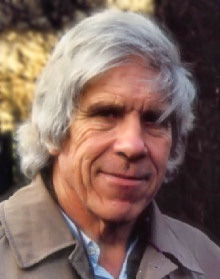W. D. Hamilton | |
|---|---|
 | |
| Born | William Donald Hamilton 1 August 1936 |
| Died | 7 March 2000 (aged 63) |
| Nationality | British |
| Education | St. John's College, Cambridge London School of Economics University College London |
| Known for | Kin selection, Hamilton's rule |
| Spouse | Christine Friess |
| Children | Three daughters |
| Parent(s) | Archibald Milne Hamilton and Bettina Matraves Hamilton née Collier |
| Awards | Newcomb Cleveland Prize (1981) Linnean Medal (1989) Kyoto Prize (1993) Crafoord Prize (1993) Sewall Wright Award (1998) |
| Scientific career | |
| Fields | Evolutionary biology |
| Institutions | Imperial College London, University of Michigan, University of Oxford |
| Academic advisors | John Hajnal Cedric Smith |
| Doctoral students | Laurence Hurst Olivia Judson |
William Donald Hamilton FRS (1 August 1936 – 7 March 2000) was a British evolutionary biologist, recognised as one of the most significant evolutionary theorists of the 20th century.[1][2] Hamilton became known for his theoretical work expounding a rigorous genetic basis for the existence of altruism, an insight that was a key part of the development of the gene-centered view of evolution. He is considered one of the forerunners of sociobiology. Hamilton published important work on sex ratios and the evolution of sex. From 1984 to his death in 2000, he was a Royal Society Research Professor at Oxford University.
Richard Dawkins has written that Hamilton was "the greatest Darwinian of my lifetime".[3]
- ^ "Obituary by Richard Dawkins Archived 4 March 2016 at the Wayback Machine", The Independent, 10 March 2000. See also his eulogy by Richard Dawkins reprinted in his book A Devil's Chaplain (2003).
- ^ BBC Radio 4 – Great Lives – 2 Feb 2010
- ^ Dawkins, Richard (2022) [2021]. Flights of Fancy: Defying Gravity by Design and Evolution. London: Head of Zeus. p. 210. ISBN 978-1838937850.